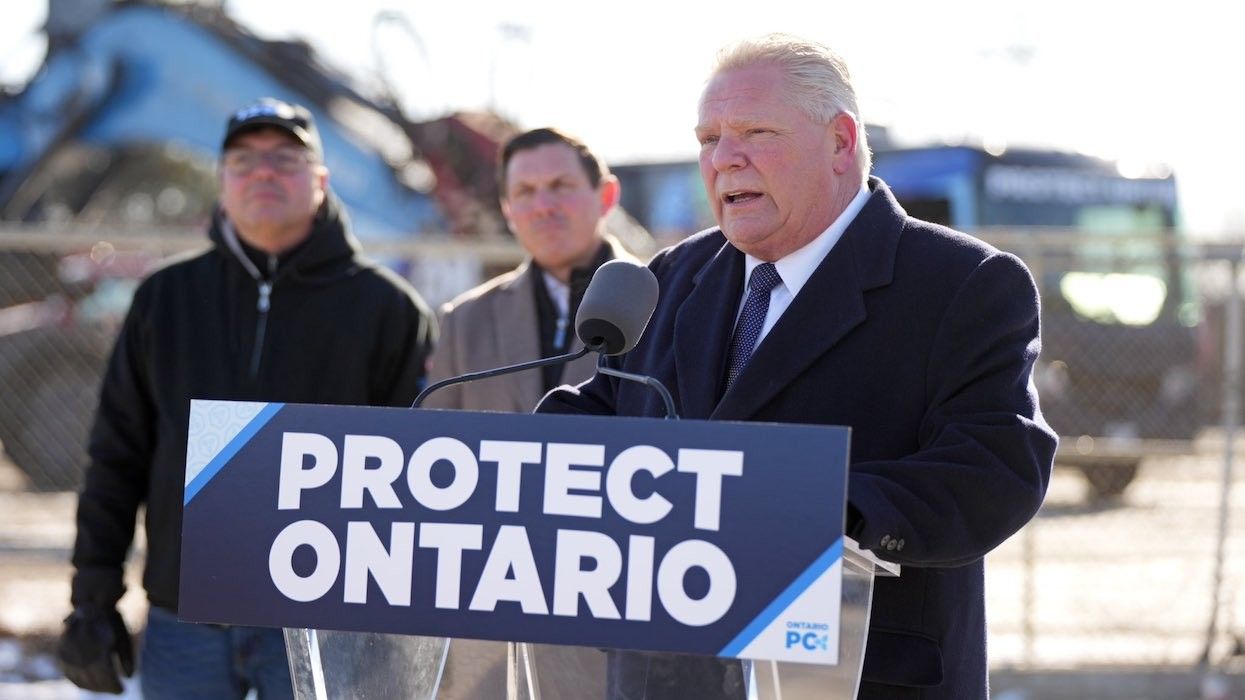With the Ontario election set for February 27, and a federal one looming, we must not lose sight of the fact we need to pick political leaders who can step up to the plate and take a serious swing at the housing crisis.
We are in unprecedented times. Housing starts and sales are abysmal. People are leaving our cities because they can’t find an affordable place to live. We need unprecedented solutions.
In Ontario, unless there is a very sudden and dramatic turnaround, the much-touted target of building 1.5 million homes by 2031 is a pipe dream. Roughly 74,500 units were started in the province last year — a decrease of 15,000 from 2023 — and we saw the weakest sales of new homes and condominiums since the mid-1990s. Sales in the GTA were excessively weak.
The province needs to build at least 100,000 new homes a year to hit its target, but starts are expected to continue to fall for the next two years. There is also the not-small issue of tariffs, which will affect the homebuilding industry, but we will leave that one aside for the moment.
The upcoming elections offer an opportunity to reset the dial on housing and fix our broken system. If we’re smart, 2025 could be the year we change policies to allow the market to work.
The industry has fought headwinds these past few years in the form of high interest rates and inflation, and those have pushed the cost of new housing beyond the means of what people can afford.
To turn the market around, we must first reduce runaway taxation and exorbitant development charges on new housing. Presently, 36% of the cost of buying a new home is due to the tax burden. On a $1-million home, $360,000 of the cost is for taxes, fees, and levies.
Second, we must speed up residential construction approval processes across the province. In the City of Toronto, for example, projects are supposed to be cleared in 90 days, but approvals are taking at least 600 days to advance. The approvals are moving at a glacial pace.
Third, we must have a streamlined and digitized municipal planning approvals and e-permitting system across the province. The present system is fragmented, cumbersome, and bureaucratic.
At RESCON’s recent annual general meeting, Ontario Premier Doug Ford addressed the housing crisis and noted that, although steps have been taken, such as removing the HST on purpose-built rentals and investing in housing-enabling infrastructure, there is more work to be done.
Indeed, as Ford correctly noted, the province has announced the investment of over $970 million via the Housing-Enabling Water Systems Fund as well as the first stream of funding under the Municipal Housing Infrastructure Program to help municipalities repair roads and bridges.
Ontario also continues to hand out millions of dollars from the $1.2 billion Building Faster Fund, Ford said, which is rewarding municipalities that are getting it done and building more homes. Meanwhile, a new Provincial Planning Statement introduced last fall is aimed at cutting red tape.
However, as is plainly evident by the latest statistics, there is an urgent need for more action. Encouragingly, the issue is gaining traction in political circles as all parties recognize we are in an emergency.
The provincial Liberals have promised that, if elected, they’d scrap development charges on middle-class housing, which would cut costs by up to $170,000 on family-sized homes of 3,000 sq. ft or less. They’d also eliminate the land transfer taxes for first-time homebuyers.
The NDP have also released a plan with several initiatives to kick-start residential home construction across Ontario.
Meantime, at the federal level, the Conservatives have promised they will cut the sales tax on new housing under $1 million, which would reduce the cost of an $800,000 home by $40,000. We are advocating that the $1-million cap be lifted by the feds and that the province do the same.
In light of the present dire situation for the residential construction industry, it is vital that we elect political leaders that are going to embrace bold new ideas and tackle the housing crunch.
Back to the baseball analogy. It is the ninth inning, and we are behind. But the challenge is not insurmountable. With the two elections forthcoming, we must ensure we have leaders who can hit a home run.





















